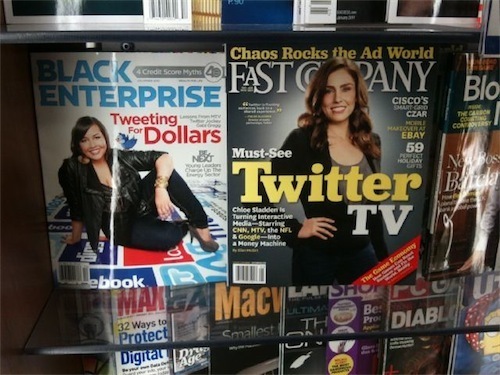Matthew Yglesias's Blog, page 2463
December 27, 2010
How The GOP Will Try to Reign Obama In
Brian Beutler reports:
In the nearly two months since the November midterms, the conventional wisdom has centered on the idea that President Obama's agenda will be largely protected from an influx of Republicans by the Senate's arcane rules and his own veto pen. With 47 members in the 112th Congress, the GOP will lack a majority, let alone a supermajority, to pass the legislation they'd need to pass to undo Obama's accomplishments and blunt his progress — as if he'd sign those bills anyway.
But Republicans are all too aware of this conundrum, and have been looking for ways around it. What they found is an obscure authority provided by a 1996 law called the Congressional Review Act. It provides Congress with an expedited process by which to evaluate executive branch regulations, and then give the President a chance to agree or disagree.
It'll be interesting to see how this works out. Obviously this passed in 1996 with the hope of severely hampering Bill Clinton, but it's obscure precisely because in 1997, 1998, 1999, and 2000 this dog didn't really bark. Then again, a lot of what's happened in politics over the past 10 years is that people have found new ways to "push the envelop" of existing political norms.


BREAKING: Half of People Are Women
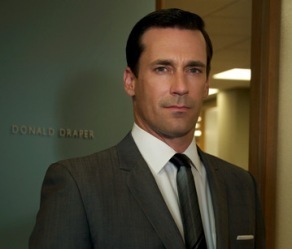
I think this from Kevin Drum nicely encapsulates the past 40-50 years of US political development:
My post earlier today about the decline of organized labor and the rise of rights-based activism within the post-60s liberal community provokes an obvious question: was this a good thing?
Obviously it was good for African-Americans and women and gays and others who benefited from it. But it wasn't so good for the economic fortunes of the working and middle classes. And that was almost certainly the tradeoff we made. In the 70s and beyond, probably 80% of the money and emotional energy that sustained the Democratic Party came from environmental and rights activists. But within the Republican Party, money and energy were about evenly divided between social conservatives and the business community. What happened after that was unsurprising: on social issues, where 80% of the liberal party was fighting 50% of the conservative party, liberals made a lot of progress. On economic issues, where 20% of the liberal party was fighting 50% of the conservative party, liberals steadily lost ground. And when Democrats decided to become more "business friendly" in the late 80s, we lost even more ground. That's how things played out, and under the circumstances that's pretty much exactly how you'd expect them to play out.
To me, this just seems like an overwhelmingly good tradeoff. After all, "African Americans and women and gays" and "the working and middle classes" aren't separate groups of people. Half the population is women. Add in gays and lesbians and racial minorities, and the move toward social tolerance has been a series of giant leaps forward for the majority of the American people. What's more, if you look at those working- and middle-class Americans whose families lived in Asia or Latin America in 1970 you'll see that the level of economic progress facilitated by the tolerance agenda is enormous.
One thing I'll say to Drum, though, is that I think the tradeoff happens along more dimensions than simply the unions vs other groups one.
Consider divorce. When a couple gets divorced, the woman normally ends up with a lower household income than she had pre-divorced. So making it easier for women to leave unhappy marriages led, in practice, to declining household incomes for American women. But I think it entails a very narrow view of human well-being to say that women were made "worse off" by changes that have allowed them to be less tolerant of abusive husbands, philanderers, etc. Social justice and human equality do not live on bread alone and I think it's both natural and healthy that as average material living standards increase progressive focus starts to turn more toward the "post-material" issues.
Relatedly, I'm not even sure how much of a real choice there even was. There were racially regressive elements of the American labor movement, but on the whole organized labor's embrace of civil rights was important to making it happen. Total homegeneity is a favorable situation for economic solidarity, but if it doesn't exist (as it never has in America) then social intolerance becomes a tool of divide and conquer strategies by capital and the optimal strategy for labor is to promote tolerance and inclusion.


DC Home Price Trends; Or, Fun With Averages
Lydia DePillis crunches the American Community Survey data to produce a chart "of the median home price citywide, vs. the highest and lowest median home prices by neighborhood cluster, over the last 15 years."
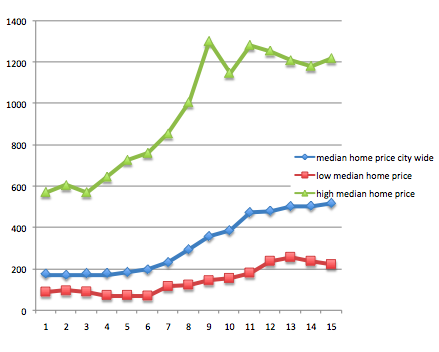
The interesting thing, as she notes, is that the median moves steadily upwards and is at its peak level even though both the top end and the bottom end are below-peak. It's easy enough to understand how that can happen, but it's a reminder that average trends can mask what's happening beneath the surface.


Twitter-Led Recovery
Making my way back home yesterday, I noticed the following at a BWI newsstand:
(my photo, available under cc license)
This means we're in some kind of Twitter bubble, right?
In all seriousness, Davis Gelles reported for the FT back on December 23:
In the past five months, the implied valuation of Facebook, the social networking site, has risen from $26.4bn to as much as $41.2bn. Twitter, the instant messaging service, has more than doubled in value during that time to $3.7bn. The value of Groupon more than trebled to $4.8bn after Google sought to acquire the coupons site.
I like Groupon and Twitter, and obviously a lot of people who aren't me like Facebook. But would any of us be shocked if a traveler from the future told us that by 2020 one of these firms was out of business? All three?


Fed Tilting Stronger Toward Disinflation

Given that for the past three years the country has consistently experienced an unusually high level of unemployment, and unusually low rate of inflation, and unusually low level of aggregate demand it seems to me that the Federal Reserve should alter its policies to be less worried about inflation and more concerned that low AD is leading to low output and high unemployment. Certainly given that we're looking at a changeover in members of the Fed's Open Market Committee one would hope for new FOMC members who are skeptical of the status quo and eager to see more growth and more demand. Instead, Sewell Chan reports that we're getting the reverse:
One is an economist who fears that the Fed's easy-money policies could lead to manias like the housing bubble that burst in 2007. Another is a Texas Democrat who served in the Clinton White House, but is wary of the Fed's aggressive efforts to combat unemployment. A third is a precocious economist who graduated from Princeton at 19. And the fourth is the only one who agreed wholeheartedly with the Fed's chairman, Ben S. Bernanke, that the economy was at risk of falling into a dangerous cycle of deflation last summer and that an additional monetary boost was needed.
Peter Diamond, meanwhile, remains in limbo.
As I've said many times, I think Barack Obama's administration has made many fewer errors than most of its critics on the left and the right believe. But part of what that means is that some of the errors it has made have been much more serious than is conventionally recognized. Failure to appreciate the importance of the Federal Reserve and the need to get good people confirmed in a reliable manner is very high on the list of errors.


States Now Incentivized to Ensure that Poor Kids Get Health Care

The health care issue encompasses a lot of ground. But one point on which there should be little disagreement is the merits of providing health care to poor kids. Poor kids aren't poor because they're lazy or stupid, they're poor because their parents are poor. And providing health care to children is cheap, and since children are young the ratio of costs to benefits is very high. And now, as Kevin Sack explains, states that succeed in actually delivering coverage to poor kids will be properly rewarded:
The Obama administration plans to announce Monday that it will make $206 million in bonus Medicaid payments to 15 states — with more than a fourth of the total going to Alabama — for signing up children who are eligible for public health insurance but had previously failed to enroll.
The payments, which were established when Congress and President Obama reauthorized the Children's Health Insurance Program in 2009, are aimed at one of the most persistent frustrations in government health care: the inability to enroll an estimated 4.7 million children who would be eligible for subsidized coverage if their families could be found and alerted. Two of every three uninsured children are thought to meet the income criteria for government insurance programs.
Of course the perversity of something like this is that the very same attributes of Alabama political culture that made these payments necessary in the first place make it extremely unlikely that the Alabama political establishment will show any gratitude to the folks who put this policy in place. Still, sometimes you've got to do the right thing and offering funds to high-poverty conservative states to ensure that their kids get health care fits the bill.


December 22, 2010
Country Driving
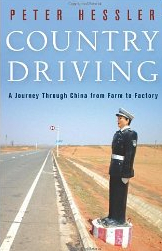
Everyone's reading and writing about China these days, and the best book I've read on the subject is Peter Hessler's Country Driving: A Journey Through China from Farm to Factory.
This is really three short books, one about driving the route of the Great Wall, one about life in a rapidly changing small town vaguely in the vicinity of Beijing, and one about a sweatshop boomtown. In an ideal world, there'd be a publication medium for novella-length nonfiction. But the second-best alternative would be for every writer with one great novella-length nonfiction book in him to do what Hessler did and turn out to have three such books, write them all in a row, and slap 'em together. Hessler's a New Yorker writer and it shows in the incredibly quality of the prose, the narrative structure, and the storytelling power. This is interesting, readable material. I laughed out loud. I felt suspense. I won't say I cried, but the term "heartbreaking" comes to mind at several points. Even better, Hessler's lived in China for a long time and speaks Chinese quite well so he can really operate like a proper reporter and not need to see things through a screen of mistranslation and interpretation.
But best of all from the point of view of this cold-hearted rationalist, is that while this is a book of reportage rather than analysis, there is real anecdotal punch here. I feel like you really do learn something about the small-scale foundations of China's economic transformation and you get a sense of where the limits might be. Recommended without preconditions, even if you're not particularly interested in the subject but just looking for a good read.


Mexico
Well, I haven't really seen or done anything in Oaxaca yet except take a taxi from the airport to the house the Crawfords are renting and then eat dinner. But I can't go to Mexico without sharing my favorite Mexico quote, Porfirio Diaz's "Poor Mexico, so far from God and so close to the United States of America."
Of course this is probably mistaken. Mexico has a lot of problems and hasn't been well-treated by its neighbor to the north. But even though Mexico is much poorer than the USA, it's a richer than average country in part because of proximity to the US market.


December 21, 2010
Devaluation vs Deflation
Paul Krugman has more on the madness of citing the Baltic economies as a model to be emulated for what to do when crisis hits:
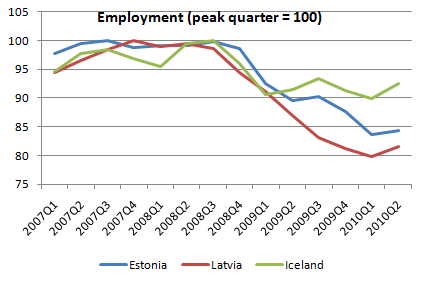
The Baltics have done much worse than Iceland. And the employment numbers are just part of it. Iceland, as even the IMF says, has been able to "preserve the Nordic social model"; there has been a lot of distress, but not much extreme hardship. Meanwhile, the impact on Baltic society has been devastating.
Now it's true that the Baltic countries have been able to maintain their fixed exchange rates. And this is crucial because ….?
One way to think about this is that when your country is hit by a shock, having your currency decline in value is a nicely automatic way of ensuring that the negative impact is spread evenly. The value of the money in your wallet declines. The value of your salary declines. The value of a pensioner's pension declines. And the negative impact on salaries is the same whether you're in the public sector or the private sector, a union or not, whatever. Iceland takes a hit, and so everyone takes a hit. Then if the result of the hit is that your compensation is way lower than your productivity, you find yourself in a position to negotiate for nominal wage increases.
If you can't devalue, each and every step in the adjustment process needs to be the result of some deliberate choice. Parliaments need to vote for pension cuts. Firms try to renegotiate contracts. You get debates about the "fair price" for public sector workers that has little to do with an economically rational discussion of productivity. Incumbents try to press for "last hired, first fired" layoffs as an alternative to salary cuts. The adjustment proceeds very unevenly and very inefficiently. This means that in addition to the big initial bad blow, you end up suffering a series of secondary and tertiary blows resulting from misalignments .


With $8 Million on the Line, People Should Be Paid For The Services They Perform

Nice report on the brass tacks implications of a missed field goal for Boise State:
"Eight million dollars would have come to the WAC if he makes the kick," Benson said. "That's the reality of it."
The Rose Bowl, like other Bowl Championship Series games, touts a per-team payout of $17 million. For teams like Boise State and others in one of the five conferences without an automatic bid, the payout is $12 million, Benson said. Boise State figured to gain $3 million, the other WAC teams would have split $5 million, and the four other second-tier conferences would have split $4 million.
Instead, Texas Christian of the Mountain West Conference is going to the Rose Bowl. Boise State will get part of the $1 million payout in Las Vegas, and the WAC will get a fraction of T.C.U.'s reward.
And of course with all these millions of dollars on the line, the workforce expects to get paid. So the coaches do get paid. And the athletic directors get paid. And so do lots and lots of other people associated with the high stakes game of college football. So why aren't the players paid? Well, because the schools have gotten together and formed a cartel that's agreed that nobody should be paid. And if you want a shot at playing professional football, you need to play for the cartel first.


Matthew Yglesias's Blog
- Matthew Yglesias's profile
- 72 followers


